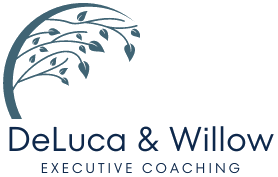Assessments, Schmessments?
Ok, I’m certified to work with a couple of well-known assessments. Both of which are psychology-based. And, I have to admit, I still have a healthy skepticism of them. Don’t get me wrong, the content and the associated ‘awareness’ they create are great! Where I scratch my head is the application of the insights. In my corporate HR career, I remember thinking that we invested a fair amount of time and money in conducting assessments. And, I noticed that very few people seemed (keyword, ‘seemed’) to actually leverage them for growth and development. I wondered why?
Limited Visibility:
I suspect the pace of high-tech had something to do with my lack of visibility around the application of findings. Most high-tech people tend to be a bit over-subscribed. I didn’t have the bandwidth to follow up? People ‘intended’ to leverage them, but because they too were busy they didn’t use the results? Or, the reports got printed, filed and forgotten? All the above contributed to my unconscious bias that ‘assessments aren’t that useful’.
Enter some rough data:
Well, I polled LinkedIn-ers, talked with industry experts. I learned the overall assessment ‘industry’ is upward of $1.6B annually, depending on which study you cite. Clearly, there is a strong use-case for the practice of incorporating them. It wasn’t until a recent conversation that I had a change in perspective. I met with a respected person in the leadership development industry. His company uses an assessment that is based on DISC. DISC is a behavior assessment tool based on the DISC theory of psychologist William Moulton Marston (who also, I believe, created the beloved character Wonder Woman). DISC centers on four different personality traits which are currently Dominance (D), Influence (I), Steadiness (S), and Conscientiousness (C). This theory was then developed into a behavioral assessment tool by industrial psychologist Walter Vernon Clarke. In my mentor’s practice, the insights from the assessment fast-track the coaching process. It allows the coach to speak in the language of the client. Additionally, data has this magic ability to take some emotion out of the feedback exercise. This, therefore, increases the efficiency and effectiveness of the coaching process! Makes total sense, right?!
Help me Help You:
As a coach, I have the luxury of spending quality time with my clients. We go broadly and deeply into where they want to go. That said, I’m looking to adopt one formal assessment. I see the value of using it as part of my on-boarding process. Help me determine which route to go! Here’s the link to the poll I shared earlier: Assessment Poll. It would be great to learn what assessment(s) you’ve taken. Additionally, to hear how you have incorporated the findings into your development. I’d love to have a conversation with you to get some more qualitative information. Just message me.
We only have a finite amount of time on this planet, and you can choose how to spend that time. Life is too short to endure an impossible boss. You own managing the working relationship just as much as your manager does.
Are you ready?: Press HERE for Success
I wish you much success in your career quest. Yours in balance, learning, growth, and harmony. – Melissa DeLuca, CEO



